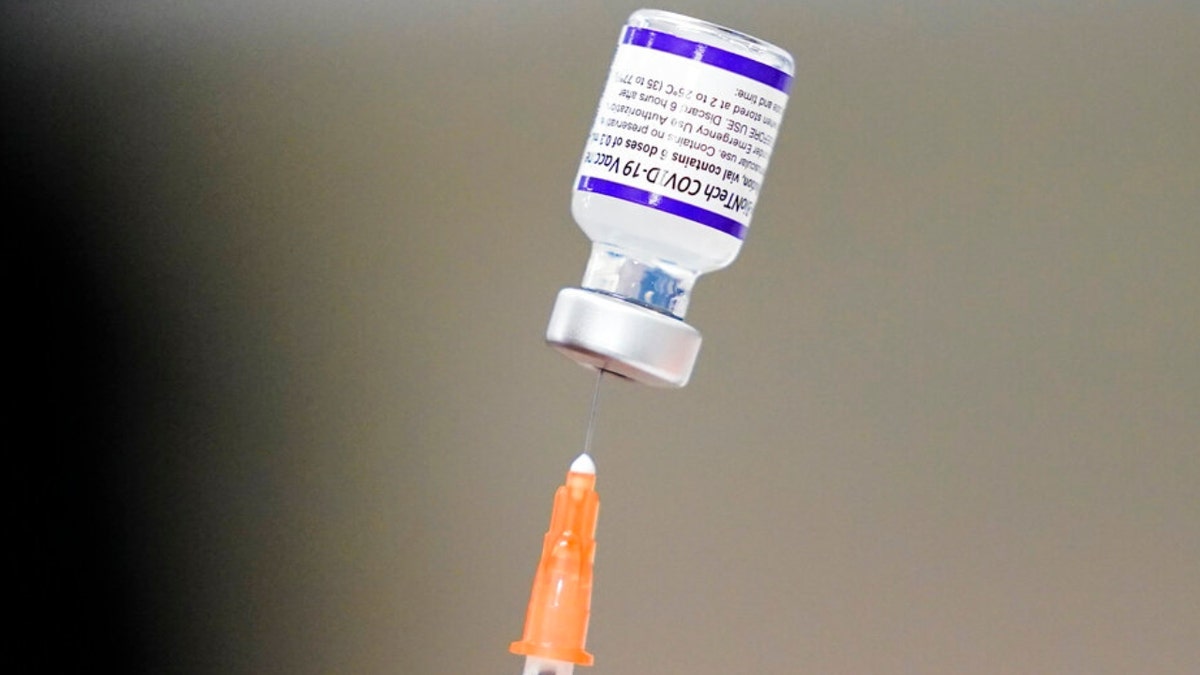Fox News Flash top headlines for March 30
Fox News Flash top headlines are here. Check out what's clicking on Foxnews.com.
On Tuesday, U.S. regulators moved to approve a second COVID-19 vaccine booster for adults aged 50 years and older.
The Food and Drug Administration (FDA) first made the announcement, authorizing an extra dose of the Moderna and Pfizer-BioNTech vaccines for emergency use in that age group and for certain younger people with severely weakened immune systems.
Later that same day, the Centers for Disease Control and Prevention (CDC) recommended the extra shot as an option, stopping short of urging that those eligible rush out and get it right away.
BIDEN TO RECEIVE SECOND COVID-19 BOOSTER SHOT ON CAMERA
"Boosters are safe, and people over the age of 50 can now get an additional booster 4 months after their prior dose to increase their protection further. This is especially important for those 65 and older and those 50 and older with underlying medical conditions that increase their risk for severe disease from COVID-19 as they are the most likely to benefit from receiving an additional booster dose at this time," CDC Director Dr. Rochelle Walensky said in a statement. "CDC, in collaboration with FDA and our public health partners, will continue to evaluate the need for additional booster doses for all Americans."
FDA vaccine chief Dr. Peter Marks said there's evidence that vaccine protection can wane over time, particularly in higher-risk groups, and that another booster will help increase protection for higher-risk individuals.

A syringe is prepared with the Pfizer COVID-19 vaccine at a vaccination clinic at the Keystone First Wellness Center in Chester, Pennsylvania, on Dec. 15, 2021. (AP Photo/Matt Rourke, File)
According to CDC data, 97.4 million Americans have received a booster dose of a coronavirus vaccine and 217.5 million have been fully vaccinated.
The Biden administration has urged people to be "up to date" with their vaccines – especially amid the winter's surge of the omicron variant – and two shots and a booster still offer strong protection against severe illness and death.
With cases markedly lower since January, state and local leaders have moved to reverse or ease pandemic restrictions, hoping to return to "normal."
The Johns Hopkins Coronavirus Resource Center recorded 23,643 new cases and 961 new deaths in the past day – even with vaccinations reported at the lowest levels since 2020.
NAVY BARRED FROM ACTING AGAINST RELIGIOUS VACCINE REFUSERS
However, with the spread of the even more transmissible BA.2 omicron sub-variant and White House reporting a lack of funding for fourth vaccine shots, the future of the pandemic in the U.S. remains uncertain.
Scientists have predicted that new variants would spread, though experts have questioned the need for additional boosters.
Dr. Anthony Fauci told the BBC last weekend that Americans should be prepared for new COVID-19 restrictions, cautioning that health officials are witnessing similar conditions in the U.S. as those in Europe.
He had previously said this month that he does not expect another surge.
In addition, two vaccine doses were nearly 80% effective against needing a ventilator or death during the omicron surge. The CDC recently said a booster pushed that protection to 94%.
Vaccine effectiveness was lowest in immune-compromised people.
While the FDA cited Israel data for its action, it is not yet clear how long any extra benefit from another booster would last, with Marks saying higher-risk Americans may need another dose in the fall if the vaccine is tailored to current viral threats.
CLICK HERE TO GET THE FOX NEWS APP
Notably, President Biden is set to receive his second booster shot on camera Wednesday.
On April 6, an FDA panel will hold a meeting to discuss vaccines in America.
The Associated Press contributed to this report.










































